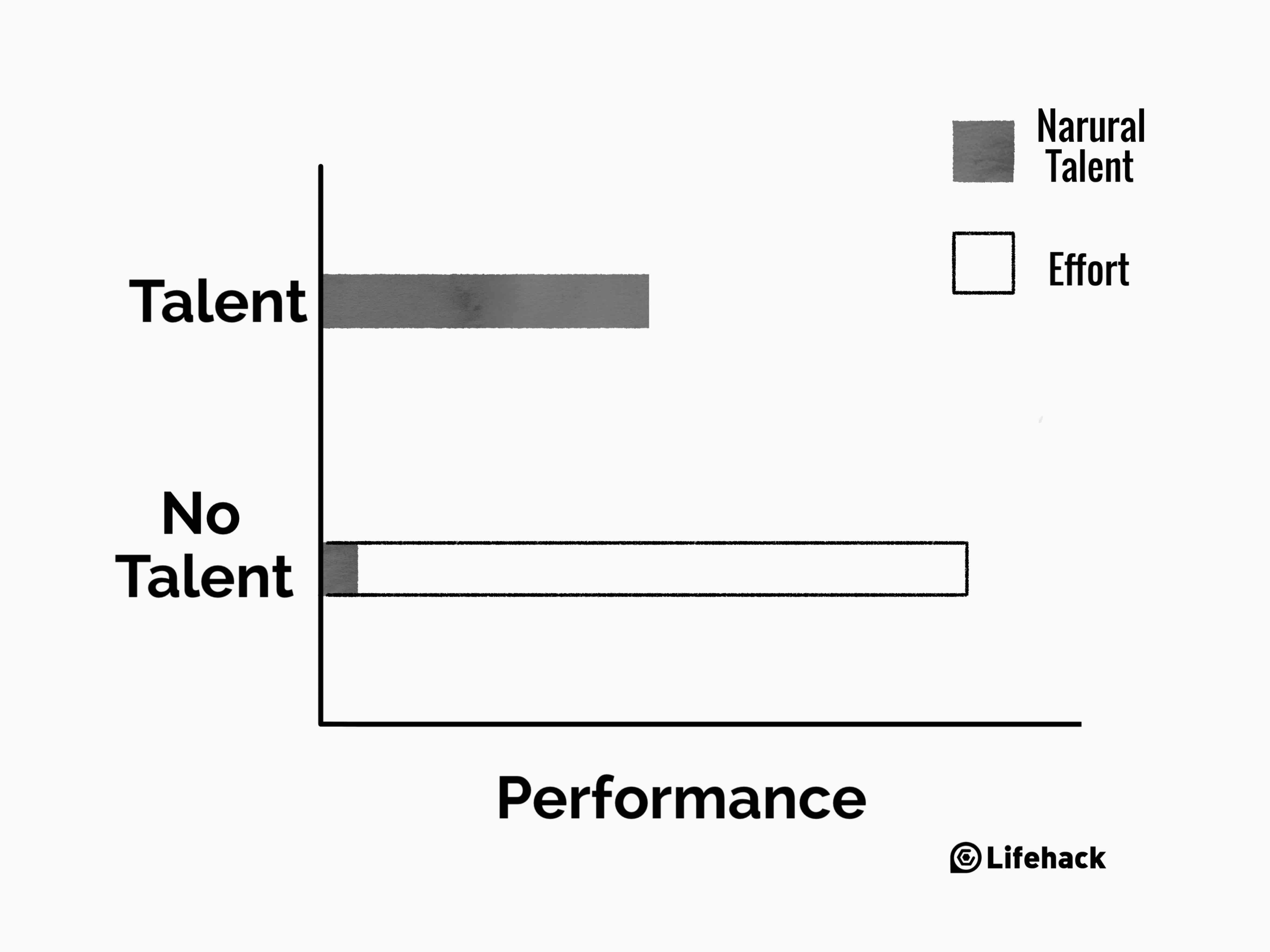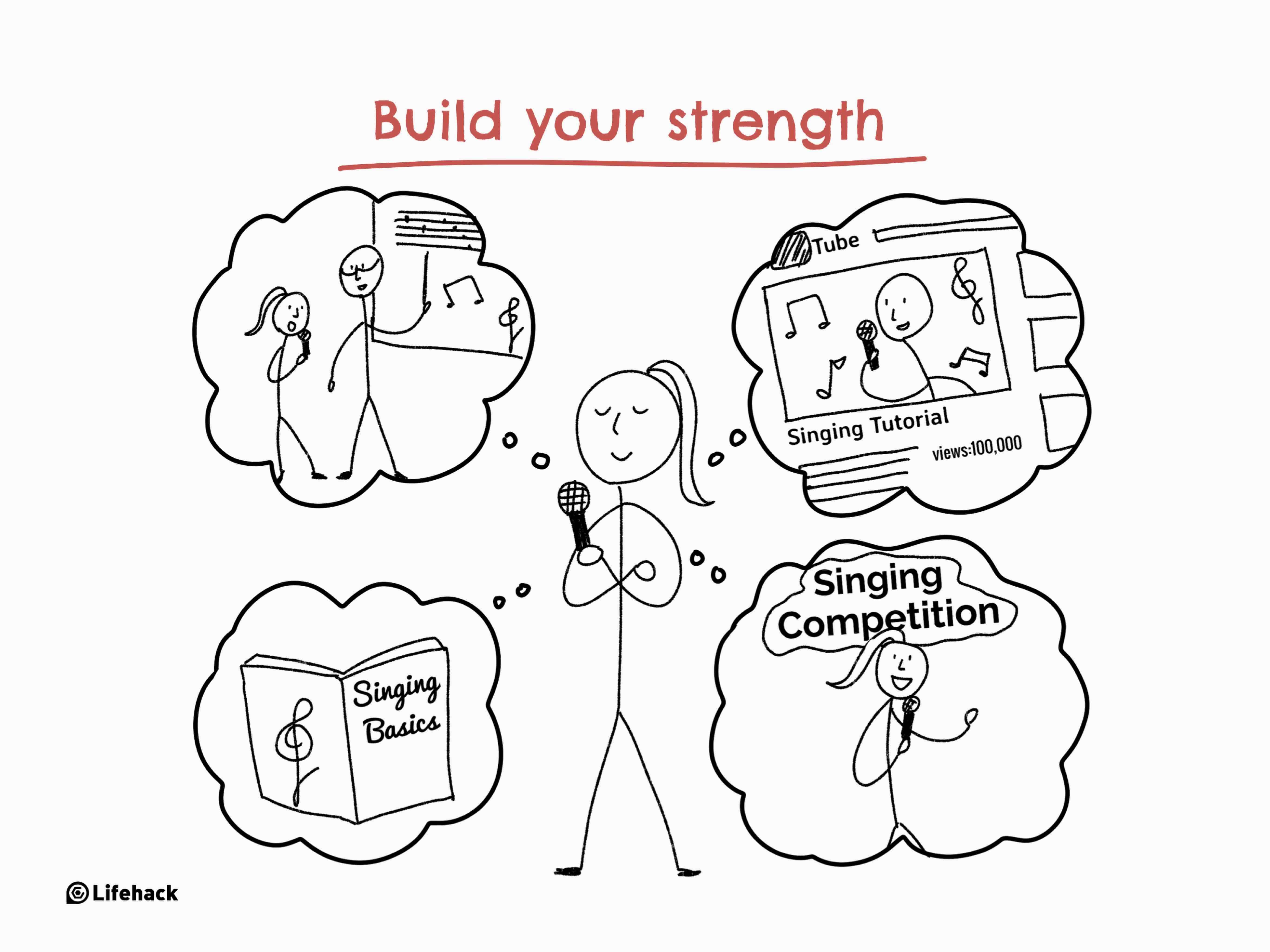We live in an achievement-obsessed society that is quick to apply the labels “talented” and “gifted” to everyone who has accomplished anything of note. Successful people are often portrayed as superhuman, born with magical abilities that separate them from the rest of the human race. For instance, award-winning actors are touted as talented, as are people who have succeeded in business. If the person in question is young, they are especially likely to be labeled this way.
The media isn’t interested in hard work, or how much effort so-called gifted and talented people have to put in before they see results. Our society now judges someone on their accomplishments, and assumes that they must have inborn gifts. We don’t stop and appreciate the effort that goes into a bestselling novel, a high-performing company, or a stunning piece of artwork. We tend to just assume that “talent” naturally gives rise to excellent results.
You can see this belief operating across society. For example, operating under the assumption that someone is either born talented or average, companies often use IQ tests to scan their applicant pools for people who supposedly show the most potential to outshine their peers. Businesses are obsessed with spotting and training the “very best.” In many cases, the “very best” is equated to “people who seem to have been born with innate ability.”
The truth about hard work
Although the media would have you believe otherwise, hard work really does trump talent. When you first meet or hear about a successful person, it’s easy to believe that they must have been born in possession of fabulous gifts. In reality, there are numerous examples of famous people who have relied on hard work.
For example, legendary basketball player Michael Jordan was dropped from his high school basketball team, but would go on to become one of the greatest sportspeople of all time. Animation pioneer Walt Disney was told that he had “no original ideas” and “lacked imagination” by the newspaper that fired him, and Oprah Winfrey was once advised that she “wasn’t fit for television.” These stories illustrate that not every successful person finds immediate success and recognition. It’s hard work and perseverance that ultimately pays off.
The power of labels
What happens when someone is told that they are talented? Sometimes, they will become complacent and lose the incentive to improve themselves. For example, a kid who is told throughout high school that they are naturally smart might assume that they will breeze through college. They might never bother to develop the skills needed to study hard and learn new material, as they think that they will be able to ace any class. College might come as a real shock to them, and because they have not bothered to learn study skills, they might find themselves struggling to cope.
Someone who has been explicitly told that they are in no way gifted or talented might become discouraged and stop following their dreams. For example, someone who takes up art classes in their thirties or forties and is told by their teacher that they don’t really have an aptitude for painting might become depressed, especially if they have waited for years to build up the confidence levels required to sign up for the class in the first place. The world could miss out on some wonderful paintings as the result of a single comment from the teacher.
To call someone “talented” can also be an act of rudeness. It implies that the person did not have to rely on their own hard work to achieve success, which belittles their efforts and shows an ignorance of how personal growth and development really happens behind the scenes. Calling someone talented also lets yourself off the hook and gives you permission to be lazy – after all, if someone else is talented and you are not, why even bother trying to achieve a similar level of success?
In short, labeling someone “talented” or “gifted” is not a straightforward compliment. The very notion that some people are born innately better than others is not constructive.
How to master your unique power
It’s true that we are all stronger in some areas than others, but hard work is the real secret to success. There are three steps you must follow in order to achieve your full potential.
First, ask yourself what interests you the most.
What do you think about most often? What do you care about most? What do you like to do in your spare time? What satisfies you? If you aren’t sure of your tastes and skills, try a few new hobbies or investigate a few new topics.
Second, work on actively building your strengths in this area.
For instance, if you have discovered that you love art, choose a medium and find resources that will help you master this specific skill. You could take classes, find a mentor, or track down materials that allow you to teach yourself. Think about the basic skills you need first, and work on acquiring them. Practice is your friend here. The more you do, the better!
Third, make sure that you keep getting feedback from a range of sources.
Let them tell you what is working well, and what needs improvement. Successful people never stop learning, and they appreciate constructive criticism. Take other people’s comments on board, commit yourself to ongoing improvement, and never stop working hard! It doesn’t matter whether other people think you are talented or not. What matters is your personal effort and work.
Embrace your work and believe in yourself
When you realize that hard work is what truly matters, you will feel free to pursue your dreams.
View this post on Instagram
So what if someone tells you that you don’t have any innate ability, or that you don’t show a great deal of potential in any particular domain?
You now know that if you choose to follow a path that holds interest for you, and are willing to devote yourself to building up a strong set of skills, there is no reason why you can’t be incredibly successful. And if someone ever does label you “talented” or “gifted,” be sure to remind them that it was hard work that made all the difference.
















































